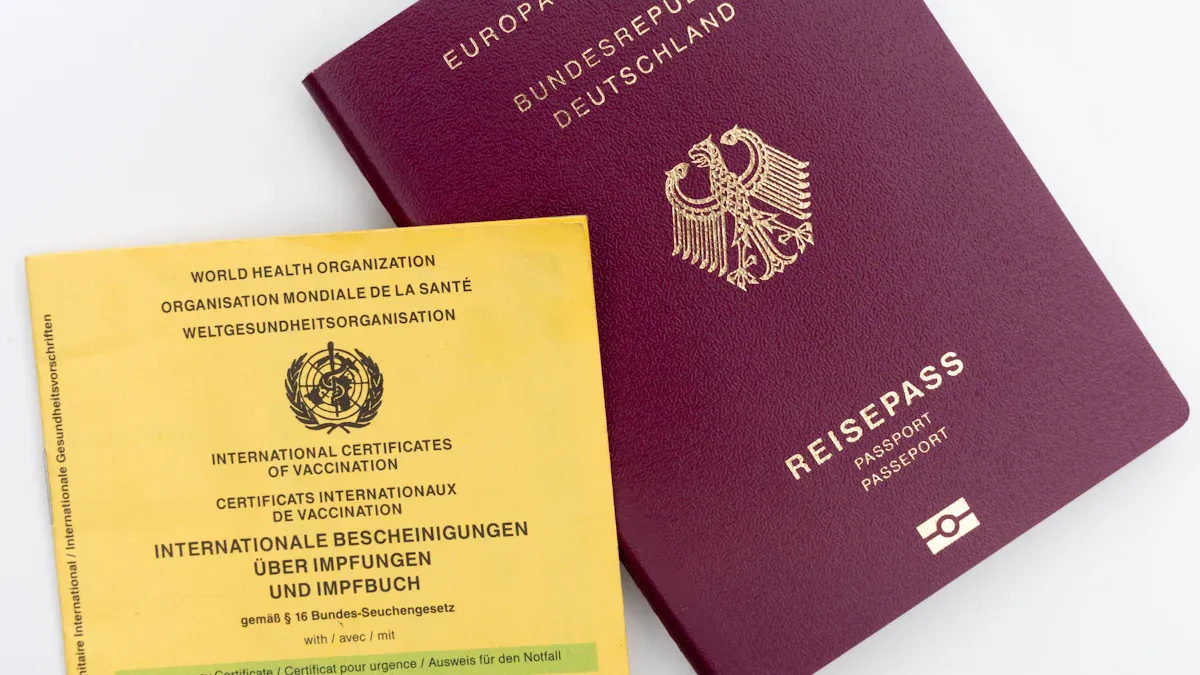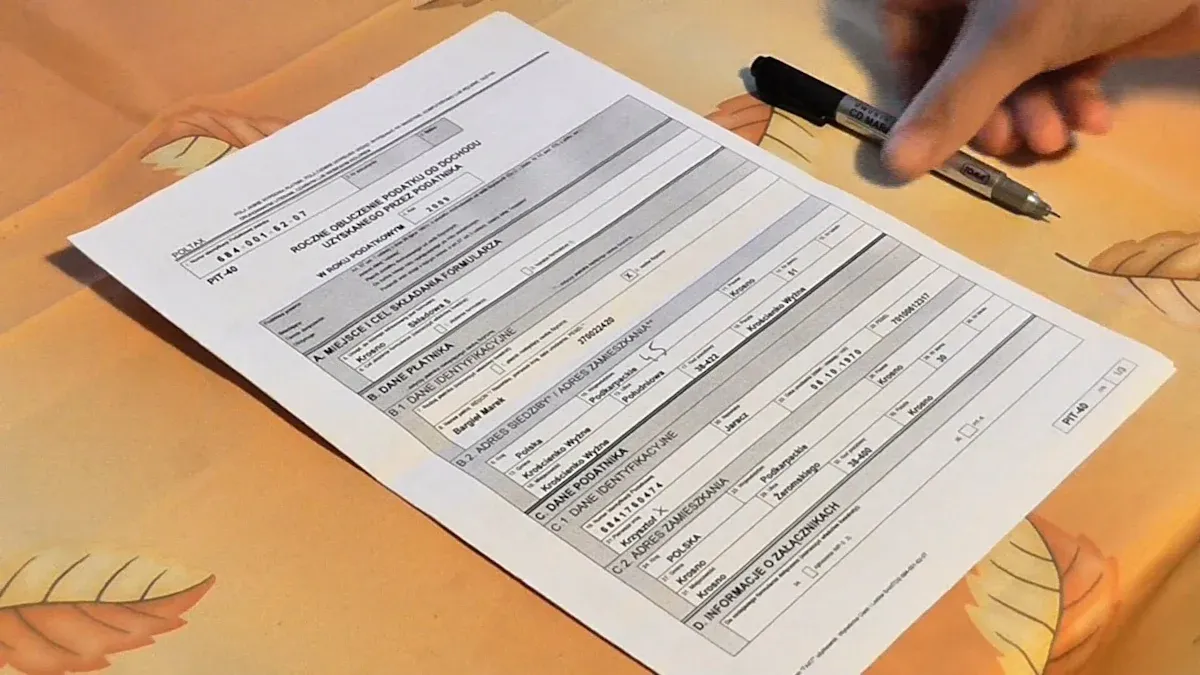- EasyCard
- Trade
- Help
- Announcement
- Academy
- SWIFT Code
- Iban Number
- Referral
- Customer Service
- Blog
- Creator
France Visa Application: Do You Need a Visa to Travel to France?

Image Source: pexels
When holding a Mainland Chinese passport, you generally need to apply for a France visa in advance to travel to France. In 2024, Mainland Chinese residents submitted 562,000 visa applications to France, with an approval rate of 82%. If you are from Hong Kong, Macao, or Taiwan, visa policies may differ. Short-term visa exemption policies mainly apply to certain European countries, and France’s passport ranks globally for visa-free convenience. It is recommended that you check the France visa application requirements in advance based on your passport and travel purpose.
Key Highlights
- Traveling to France or staying for an extended period requires selecting the appropriate visa type based on your purpose. Short-term multi-country trips require a Schengen visa, while long-term study or work requires a national visa. Some regions’ passports may qualify for visa exemptions.
- Applying for a France visa requires preparing documents in advance, including a valid passport, financial proof, accommodation and flight bookings, etc. You need to fill out an online application form and book an interview, ideally starting the process 90 days before travel.
- During the visa application process, ensure your passport has sufficient validity, documents are authentic and complete, and attend the interview on time to avoid common mistakes and increase approval chances.
France Visa Application Types

Image Source: unsplash
France visa applications are mainly divided into three categories: Schengen visa, national visa, and short-term visa exemption policies. You need to choose the appropriate visa type based on your travel purpose, duration of stay, and destination regions. Below is a detailed explanation of each type’s applicable scenarios, duration, target audience, and precautions.
Schengen Visa
The Schengen visa is suitable for short-term stays or multi-country travel in France and other Schengen countries. You can travel freely within the 26 Schengen member states with a single Schengen visa without needing separate visas for each country. According to the official instructions from China Merchants Bank for handling France Schengen visas, the Schengen visa can be valid for up to five years. You can stay for a maximum of 90 days within any consecutive 180-day period. This means you can stay in France and other Schengen countries for up to 90 days every six months. The Schengen visa is divided into entry and transit visas. Entry visas are further categorized into single-entry and multiple-entry. You need to select the appropriate type based on your itinerary. If you plan to visit multiple Schengen countries, it is recommended to apply for a France visa with the country where you will stay the longest as the main destination. The Schengen visa is suitable for short-term tourism, business, family visits, or exchange purposes. You need to note that holding a Schengen visa does not mean unrestricted entry to all Schengen countries. The “Valable pour” field on the visa page specifies the applicable countries. If it only lists France, you can only enter France and not other Schengen countries.
Tip: Your cumulative stay in France and the Schengen area must not exceed 90 days within 180 days. For first-time Schengen visa applications, choose the country of longest stay as the application target.
National Visa
The France national visa (also called a national visa) is suitable for those planning to stay in France for an extended period or visit French overseas territories. If you plan to study, work, reunite with family, or reside long-term in France, you must apply for a national visa. The France national visa generally allows entry only to France and not to other Schengen countries. The “Valable pour” field on the visa page will clearly indicate it is valid only for France. Key differences between the France national visa and the Schengen visa are as follows:
- The France national visa allows entry only to France, while the Schengen visa allows a cumulative stay of up to 90 days in multiple Schengen countries.
- The visa page indicates the applicable scope, such as France only or all Schengen countries.
- Schengen visas are divided into entry and transit categories, while national visas are specific to France.
- Schengen visas allow multiple entries, while national visas typically restrict entry to France only.
- If the France national visa indicates only France, you cannot enter other Schengen countries.
If you plan to visit French overseas territories (e.g., Guadeloupe, Martinique, Réunion), pay special attention to the visa’s applicable scope. French overseas territory visas will clearly indicate the valid scope on the visa. For example, “FRANCE SAUF CTOM” means the visa is not valid for overseas territories, while “DEPARTEMENT D’OUTRE MER (FRANCE)” specifies it applies to overseas territories. You must confirm that the visa covers your destination during the application. Visa types include Type A (transit), Type C (short-term, up to 90 days), and Type D (long-term). The visa also indicates the number of entries and the maximum allowed stay. Applicants for French overseas territories must pay attention to the visa remarks section to ensure the scope is correct. EU citizens, long-term residents, and their families enjoy special conveniences and requirements during the application process.
Short-Term Visa Exemption Policy
France’s short-term visa exemption policy mainly applies to passport holders from certain countries and regions. If you hold a passport from Hong Kong, Macao, Taiwan, Japan, South Korea, Singapore, or similar regions, you can enter France visa-free for up to 90 days. In 2025, France adjusted its short-term visa exemption policy, updating the list of visa-free and visa-on-arrival countries, covering multiple regions in Europe, the Americas, Asia, Africa, and Oceania. Schengen countries mutually exempt visas for up to 90 days. Some countries in the Americas, Asia, Africa, and Oceania also enjoy visa-free or e-visa conveniences. When entering visa-free, you still need to meet entry requirements such as passport validity, return tickets, and financial proof. For Chinese passport holders, a France visa application is still required to travel to France. From November 30, 2024, to December 31, 2025, China expanded its visa-free entry to 38 countries, including France, allowing holders of ordinary passports to visit for business, tourism, family visits, exchange visits, or transit with a visa-free stay extended from 15 to 30 days. Exchange visits are also included in visa-free purposes. If you do not qualify for visa exemption, you must apply for a France visa in advance.
Friendly reminder: When choosing a France visa application type, consider your travel itinerary, duration of stay, and number of countries visited. Frequent visits to multiple Schengen countries suit a Schengen visa, while long-term study or work in France requires a national visa. Visa exemptions apply to a limited group, so check the latest policies before travel.
Application Process and Documents

Image Source: pexels
Online Application and Booking
When applying for a France visa, you first need to understand the latest official online process. You can visit the France Visa Application Center website or the French Embassy in China website for detailed guidance. The process consists of the following main steps:
- Visit the France Visa Application Center website, create a personal account, and fill in basic information.
- Fill out the visa application form online and upload required documents. The system will prompt for errors in real-time and automatically verify document formats.
- Pay the visa application fee online. Based on 2024 exchange rates, the Schengen visa fee is approximately USD 90 (about CNY 660).
- Select a suitable time to book an interview and print the appointment confirmation page.
- Prepare all required documents, including passport, photo, financial proof, accommodation proof, health insurance, etc.
- Visit the visa center or embassy at the scheduled time with documents and appointment confirmation to complete the interview and biometric data collection.
When processing on-site, you can use smart self-service terminals to complete preliminary steps like appointment confirmation, payment, and fingerprint registration. The waiting area provides multilingual video guidance to help you understand form filling and document preparation. Electronic screens display queue progress and functional area locations, improving processing transparency.
Friendly reminder: It is recommended to start the France visa application 90 days before travel. During peak seasons, book appointments half a month in advance to avoid delays due to insufficient review time.
Document Checklist
When preparing France visa application documents, you need to provide the following based on the visa type and personal circumstances:
- Valid passport (validity must extend at least three months beyond the planned departure date from France, with at least two blank visa pages and a signature on the last page. If you have an old passport, provide it as well.)
- Completed and signed visa application form
- Recent personal photo (35mm x 45mm, white background, no head covering)
- Financial proof (e.g., bank deposit certificate issued by a Hong Kong bank, recent three-month bank statements showing account balance, recommended balance not less than USD 6,000, about CNY 43,800)
- Accommodation proof (hotel booking confirmation in France, lease contract, or invitation letter)
- Round-trip flight booking
- Travel medical insurance (coverage of at least USD 30,000, about CNY 219,000, covering the entire travel period)
- Education and work experience proof (degree certificate, employer letter)
- No criminal record certificate (issued by Chinese public security authorities)
- Language proficiency proof (e.g., French or English test results)
- Health certificate (required for some visa types)
- Identity documents (e.g., birth certificate)
Different visa types may require additional specific documents. For example, a student visa requires an admission notice and parents’ proof of income. When preparing documents, ensure all files are authentic, standardized, and complete to avoid rejection due to document issues.
Common pitfalls: Unreasonable itinerary, missing accommodation proof, mismatched insurance duration, insufficient financial proof, and errors in the application form are major reasons for rejection. Ensure all documents are consistent and cover the entire itinerary.
Processing Locations and Time
You can submit documents at France Visa Application Centers in multiple Chinese cities. France has 15 visa centers in China, located in:
- Beijing
- Shanghai
- Guangzhou
- Chengdu
- Shenyang
- Wuhan
- Chongqing
- Jinan
- Changsha
- Fuzhou
- Hangzhou
- Kunming
- Nanjing
- Shenzhen
- Xi’an
These centers provide services like document submission and biometric data collection. You can choose the nearest visa center based on your residence to improve processing efficiency.
Regarding processing time, France visa applications take an average of 10 working days to complete. Document preparation typically takes 3-5 days, and embassy review takes 3-5 working days. Agency services take longer, about 15-20 working days. Appointments during peak seasons require booking half a month in advance, and it is recommended to submit applications at least one month before travel. Officially, applications can be submitted as early as 90 days before travel, with the latest submission recommended one month prior.
| Stage | Time Range | Description |
|---|---|---|
| Document Preparation | 3-5 days | Includes document translation, form filling, flight, and insurance preparation |
| Embassy Review | 3-5 working days | Embassy review time after submission |
| Total Processing Time | About 10 working days | Document preparation + embassy review |
| Agency Service | 15-20 working days | Longer preparation and review time for agencies |
| Appointment Time | Half a month in advance during peak seasons | France Visa Application Center appointment time |
| Earliest Submission Time | 90 days before travel | Official earliest application time |
| Latest Submission Time | At least 1 month before travel | Official recommended latest submission time |
It is recommended to plan your time carefully to avoid delays due to document preparation or review issues affecting your itinerary.
Passport and Interview Requirements
During the France visa application process, the passport and interview stages are critical. The passport must meet the following requirements:
- Passport validity must be at least 6 months from the application date, and at least 3 months beyond the visa’s expiration.
- The passport must have blank visa pages and a signature on the last page.
- If you have an old passport, provide the original as well.
- Passport information must match the application form, flight, and accommodation documents.
The interview stage is mainly for long-term or special visa types. You need to visit the visa center or embassy at the scheduled time with all documents to undergo the interview and biometric data collection. Interview questions cover itinerary, funding sources, study motives, etc. You should prepare in advance, answer politely, and highlight genuine intentions and reasonable planning.
The rejection rate is approximately 15.7% to 20%, with main reasons including insufficient language proficiency, non-standardized documents, unclear study plans, and poor interview performance. Improve your French proficiency, prepare authentic documents, plan your itinerary reasonably to increase approval chances.
For your first Schengen visa application, choose the country where you will stay the longest as the application target. If the stay duration is the same in multiple countries, choose the first entry country. For example, if you enter via France and stay 3 days in France and 6 days in Italy, apply for an Italy Schengen visa. If you stay 3 days each in France, Italy, and Germany, apply for a France visa.
Financial proof must cover all expenses during your stay in France. You need to provide recent three-month bank statements showing account balance, with a recommended balance of at least USD 6,000. Funds must come from legitimate sources, and if sponsored by others, an authorization document is required. Student visas also require parents’ proof of income and six-month bank statements, with a balance generally not less than USD 10,000. Bank statements should be balanced, avoiding sudden large deposits.
During the France visa application process, always follow the latest official policies and adjust document preparation promptly to ensure successful approval.
When applying for a France visa, you should note the following points:
- Choose the appropriate visa type, plan your itinerary in advance, and prepare authentic and valid documents.
- Ensure sufficient passport validity, standardized document translations, and timely appointment submissions.
- Familiarize yourself with the process and consult official sources promptly if you have questions to avoid rejection due to unfamiliarity with procedures.
FAQ
Can I reapply if my France visa application is rejected?
You can reapply. It is recommended to identify the reason for rejection and resubmit with supplemented documents.
Must financial proof be from a Mainland Chinese bank?
You can use financial proof issued by a Hong Kong bank. Bank statements must show genuine account balances, with a recommended balance of at least USD 6,000 (based on the current exchange rate).
Must flights and hotels be fully booked when applying for a France visa?
You need to provide flight and hotel booking confirmations. Bookings can be cancellable types, and full payment is not required.
Applying for a French visa requires preparing several documents, with proof of financial means being one of the most crucial. Whether for study or travel, you need to demonstrate sufficient funds to ensure a smooth trip. However, high fees and opaque exchange rates during the preparation of financial documents and subsequent overseas spending are often major pain points.
To solve these challenges, we recommend an efficient, low-cost cross-border financial solution: BiyaPay. BiyaPay’s transfer fees are as low as 0.5%, helping you save a significant amount of money. Its real-time exchange rate lookup feature allows you to stay on top of exchange rate movements, ensuring every transaction is worthwhile. Moreover, BiyaPay supports flexible conversions between fiat and cryptocurrencies, offering you more diverse ways to manage your funds. Whether preparing visa documents or for your future life abroad, BiyaPay can be a reliable financial partner. Register now to start your new global financial journey.
*This article is provided for general information purposes and does not constitute legal, tax or other professional advice from BiyaPay or its subsidiaries and its affiliates, and it is not intended as a substitute for obtaining advice from a financial advisor or any other professional.
We make no representations, warranties or warranties, express or implied, as to the accuracy, completeness or timeliness of the contents of this publication.




Contact Us
Company and Team
BiyaPay Products
Customer Services
is a broker-dealer registered with the U.S. Securities and Exchange Commission (SEC) (No.: 802-127417), member of the Financial Industry Regulatory Authority (FINRA) (CRD: 325027), member of the Securities Investor Protection Corporation (SIPC), and regulated by FINRA and SEC.
registered with the US Financial Crimes Enforcement Network (FinCEN), as a Money Services Business (MSB), registration number: 31000218637349, and regulated by FinCEN.
registered as Financial Service Provider (FSP number: FSP1007221) in New Zealand, and is a member of the Financial Dispute Resolution Scheme, a New Zealand independent dispute resolution service provider.




















